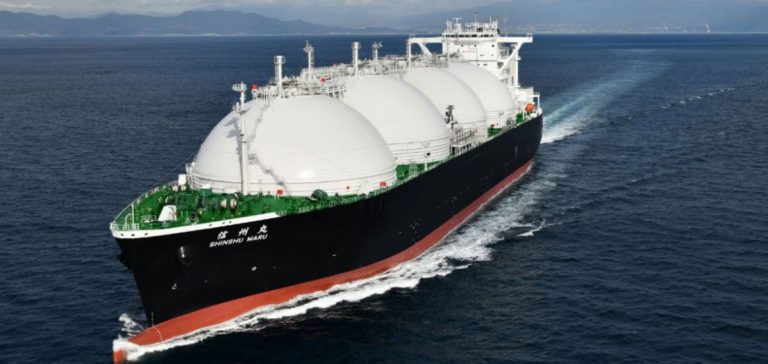Hiroshima Gas has announced the start of construction for two liquefied petroleum gas (LPG) tanks at its liquefied natural gas (LNG) terminal in Hatsukaichi beginning in December. These facilities aim to increase the company’s capacity to receive different types of LNG, including lean LNG. The commissioning of the tanks, each with a storage capacity of 990 metric tons, is scheduled for September 2026. This initiative is part of Hiroshima Gas’s strategy to diversify its LNG supply sources before the expiration of its current contracts around 2030.
According to company officials, adding these LPG tanks will prepare the company for a greater availability of lean LNG, notably from the United States. LPG is used in Japan to adjust the calorific value of city gas, and lean LNG requires a larger amount of LPG to reach the required energy levels. Currently, Hiroshima Gas transports LPG by tanker trucks from other terminals to Hatsukaichi. With the new tanks, the company plans to receive LPG directly by coastal vessels.
Diversification of LNG Supply Sources
Kazunori Tamura, Senior Executive Officer and Board Member of Hiroshima Gas, stated that this approach aims to anticipate the renewal or gradual expiration of LNG purchase contracts by 2030. The company is currently contracted for a total of approximately 400,000 metric tons of LNG per year, with suppliers such as Sakhalin 2 in Russia, Osaka Gas, and Malaysia LNG. Facing uncertainty over the renewal of the contract with Sakhalin 2, which expires in March 2028, Hiroshima Gas is exploring various options to secure its supply.
Satoshi Sano, General Manager of the Energy Resources and International Business Department, emphasized the importance of diversifying LNG supply sources to reduce risks. The company favors medium- and long-term supply contracts as the basis of its portfolio while maintaining the flexibility to adapt to market developments. Hiroshima Gas also has contingency plans to procure LNG from other companies in case of disruptions to its current contracts.
Adapting to LNG Market Developments
The construction of the new LPG tanks will enable Hiroshima Gas to receive low-calorific-value LNG, a growing trend with the increase of lean LNG exports from the United States. Japan’s Ministry of Economy, Trade and Industry (METI) forecasts a 12.8% increase in LPG demand for city gas by fiscal year 2028-2029, mainly due to this development. By strengthening its LPG storage capacity, Hiroshima Gas positions itself to effectively meet this growing demand.
The Hatsukaichi terminal, unique in its kind, was designed to minimize impact on the local environment. Located opposite Miyajima Island, a World Heritage site housing the Itsukushima Shrine, the terminal uses “pit-in” type LNG tanks. These tanks are built in underground concrete pits, reducing their visibility and environmental footprint. Since 2016, the terminal has been capable of receiving standard LNG carriers with capacities up to 177,000 kiloliters.
Future Outlook for Hiroshima Gas
With the expansion of the terminal’s area to 50,000 square meters in 2021, Hiroshima Gas has increased its operational capacity. However, due to current LNG storage limitations, the company can unload only about half the cargo from a standard LNG carrier, with the rest delivered to another terminal. To address this constraint, Hiroshima Gas has signed a joint transportation contract with Tokyo Gas until fiscal year 2027-2028.
By enhancing its LPG storage capacity and diversifying its LNG supply sources, Hiroshima Gas is preparing for the challenges of the global energy market. The company aims to ensure a stable gas supply for its customers while adapting to technological and geopolitical changes. The decision regarding the renewal of the contract with Sakhalin 2 remains pending, but Hiroshima Gas continues to explore all options to secure its energy future.






















